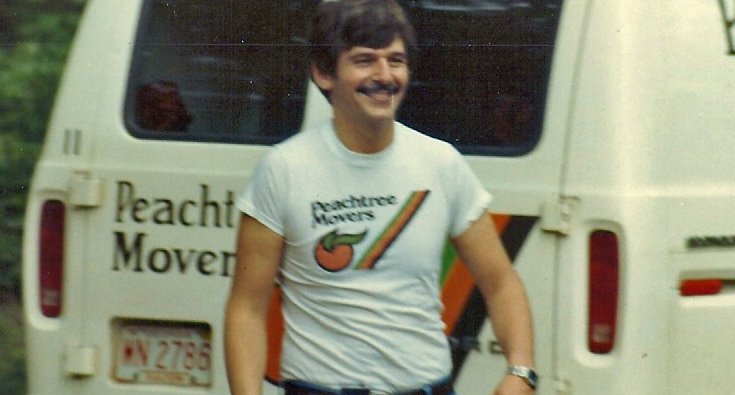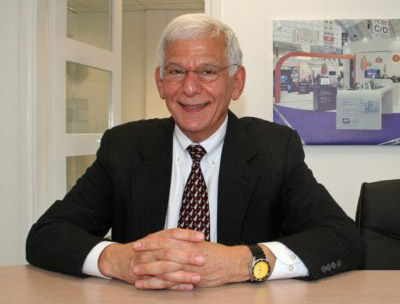With a master’s degree in urban affairs, how did I become an office mover? My first job was with the State of Connecticut, where our mission was to “fight” substandard housing and squalor. I was totally disillusioned working for the government and two years later moved to New York, where I got a job as a stock broker on Wall Street. Exactly 35,040 miserable hours later (4 long years), I escaped from New York and moved to the promised land, Atlanta, in 1974.
In Atlanta, to get a “window” on the city in the hope of finding a business opportunity, I became a commercial real estate agent. As an independent agent, I could run deals anywhere in metro Atlanta and, therefore, soon got to know most of the key people who managed and leased office buildings. I loved Atlanta, but lost my job and almost everything I owned when the real estate bubble burst in 1975-1976. Desperately needing income and a job, I asked myself how I could capitalize on my contacts in real estate. With no income, I had to downsize and hire a moving company to move my 1 ½ (remaining) rooms of furniture. It was then that I had an “aha” moment. The two movers made the move look so easy that I naively connected two dots—moving and commercial real estate. That was it; I would become an office mover.
To learn more about the industry, I wrote a letter to 87 moving companies in the Atlanta Yellow Pages. I asked each mover to please hire me as a mover/helper so I could learn the business and ultimately start my own company. Only one mover, Aaron Van Lines, an agent for Lion Van Lines, offered me a job. From March until the end of October 1976, I spent most of my time working on the back of a truck learning how dangerous and difficult moving was.
On November 1, 1976, I started Peachtree Movers in Atlanta. Not only did I not know how to run a moving company, I soon discovered I didn’t know how to run a business. Over the years as a student of that terrible “School of Hard Knocks,” my claim to fame was that I made every mistake you could possibly make running a moving company—but just one time. From a truck loaded with furniture breaking down an hour from our base at 11 o’clock at night, a truck catching on fire from a smoldering cigarette, to fraudulent Workers’ Comp claims, Murphey’s Law was alive and well in the early days of my moving company. I gave myself a nickname—“No Life.”
After I overcame each disaster, I’d ask myself one very important question, “What can I do to prevent the same problem from becoming a crisis again?” In time I developed a system, a process, and procedures for giving me my life back. I developed an infrastructure that everyone had to follow—no exceptions. Overnight, life became great at my company, Peachtree Movers.
While the other guys sold price, I realized that moving is a service; give customers superior service and they’ll be back. I discovered that this was a great way to differentiate our business in the marketplace so that I could charge a premium price for premium service. It was a great business model that I now share in my IOMI® online office moving seminar.
Be sure to join our Group at www.linkedin.com/groups/12060567 For more information on our online office moving training, please visit www.officemoves.com/training/index.html or call Ed Katz at 404.358.2172.










